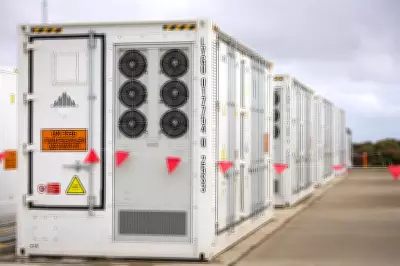
Australia's aviation sector is implementing a major safety crackdown, with leading airlines moving to ban the use of portable power banks during flights starting this December. The decisive action comes in response to a growing number of fire incidents linked to the popular backup batteries.
What are the new power bank rules?
From December 1, Virgin Australia will prohibit passengers from using power banks to charge devices mid-flight. The Qantas Group, encompassing Qantas, QantasLink, and Jetstar, will follow suit on December 15.
While their use in the cabin is banned, travellers will still be permitted to carry a maximum of two power banks in their hand luggage. A critical stipulation is that each unit must not exceed 160 watt hours in capacity. Airlines also mandate that these power banks must be stowed securely and kept readily accessible, not placed in overhead lockers for extended periods. Importantly, power banks are forbidden in checked luggage due to the heightened risk.
Why are airlines taking this action?
The ban is a direct response to a series of alarming safety incidents. In July, a Virgin Australia flight experienced a fire, while a packed Air China flight had a similar scare in October. A more dramatic event occurred in January, when passengers were forced to evacuate an Air Busan plane after a fire ignited in an overhead locker, gutting the aircraft.
These incidents highlight the significant risk posed by the lithium-ion or lithium-polymer batteries commonly used in power banks. Aviation expert Natasha Heap, a former pilot and emergency procedures instructor, welcomed the strengthened measures. "They are a significant risk and can be challenging to extinguish," Heap told 7NEWS.com.au. "The thought of an in-cabin fire is one of the most stressful events that can happen. Preventing people from using them on board reduces the risk."
The data supports these concerns. The US Federal Aviation Administration recorded 89 lithium battery incidents on planes in 2024, with a further 38 already reported in the first half of 2025. In Australia, the ACCC has issued more than a dozen power bank recalls since 2020.
What does this mean for travellers?
With over 40% of passengers typically travelling with at least one power bank, this change will affect many flyers. Instead of relying on their own battery packs, passengers will need to use in-seat power outlets or USB ports to charge phones and tablets.
Technology commentator Val Quinn explained the underlying danger: "The real problem is when they get damaged or they get a really hard knock, and that can compromise the lithium-ion battery inside." This new, consistent policy across major carriers simplifies passenger expectations and represents a proactive step towards mitigating a clear and present danger in the skies.





